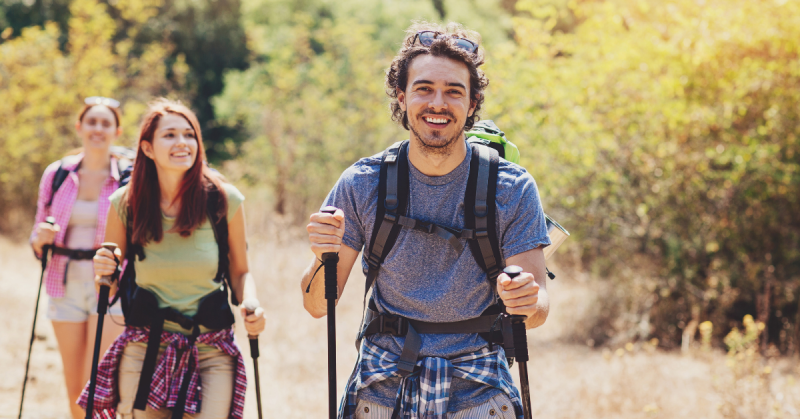Outdoor sports are an important form of activity that positively affects mental health as well as physical health. Outdoor sports can often help reduce stress, increase mental vitality, and support emotional well-being.
Outdoor exercises are generally effective in coping with stress because they take place in the peaceful atmosphere of nature.
Exercising in this type of environment and being surrounded by natural beauty can reduce stress levels by providing mental serenity.
Outdoor sports can improve mood by increasing endorphin secretion. Exposure to sunlight can increase vitamin D synthesis, which can positively affect serotonin levels and reduce the risk of depression and anxiety.
Additionally, outdoor sports often provide opportunities for social interaction, which can prevent isolation and strengthen mental health by increasing social connections.
Outdoor sports can increase personal accomplishment and self-confidence along with the relaxing effect of nature.
Outdoor activities such as mountaineering, cycling and running allow individuals to push their limits and experience their success in these activities. This can increase a person’s self-confidence and strengthen mental endurance.
When all these factors come together, outdoor sports can positively impact mental health by improving an individual’s overall quality of life. Therefore, participating in outdoor sports regularly can be an effective strategy to support physical and mental health.

The Effect of Outdoor Sports on General Quality of Life
Outdoor sports can contribute to a number of factors that positively impact overall quality of life. These sports have many positive effects on physical health, mental health, social connections and life satisfaction.
In terms of physical health, outdoor sports can be seen as part of regular physical activity. Outdoor activities such as running, walking, cycling and mountaineering improve cardiovascular health, increase muscle mass and support body flexibility. This increases overall energy levels and can improve quality of life.
The positive effects on mental health are also notable. Sports done in nature can reduce stress, provide mental relaxation and improve mood.
Additionally, outdoor sports may reduce the risk of depression and anxiety as time spent in nature increases vitamin D production.
Social connections can also be strengthened through outdoor sports. Group activities bring individuals together, strengthen social bonds and prevent isolation.
Outdoor activities with friends, family members or sports communities can expand the social support network.
Additionally, outdoor sports can increase life satisfaction. Time spent in nature offers people the opportunity to discover beauty, have adventures and gain different experiences.
This allows individuals to enjoy life and develop a more positive outlook on life in general.
With these various effects, outdoor sports offer individuals a rich experience in terms of both physical and mental health.
Therefore, participating in outdoor sports regularly can be an effective strategy to improve overall quality of life.

What are the Physical Effects of Outdoor Sports?
- Improving Cardiovascular Health: Outdoor activities can improve cardiovascular health by strengthening the cardiovascular system. Outdoor sports such as running, cycling and swimming support the circulatory system by increasing the heart rate.
- Increasing Muscle Strength: Outdoor sports can increase muscle strength by exercising various muscle groups in the body. Activities such as mountaineering, climbing, and canoeing can be effective in strengthening and toning muscles.
- Increasing Flexibility and Mobility : Outdoor sports can increase flexibility and mobility in the body. Sports such as mountain biking, yoga, and climbing can offer the opportunity to stretch joints and have a wide range of motion.
- Improving Body Composition: Regular outdoor activities can improve body composition by increasing fat burning. Activities such as walking, jogging or camping can contribute to weight control by speeding up metabolism.
- Improving Balance and Coordination : Outdoor sports can improve balance and coordination due to challenging terrain and changing conditions. Activities such as skiing, water sports or mountaineering can increase the body’s ability to keep balance.
- Supporting Skeletal Health: Outdoor activities can increase bone density and support skeletal health. Especially load-bearing sports can be effective in strengthening bones and reducing the risk of osteoporosis.
- Increasing Energy Levels: Outdoor sports, when done regularly, can increase energy levels and promote an overall more energetic lifestyle. Physical activity can help perform daily activities more effectively by increasing energy production in the body.




